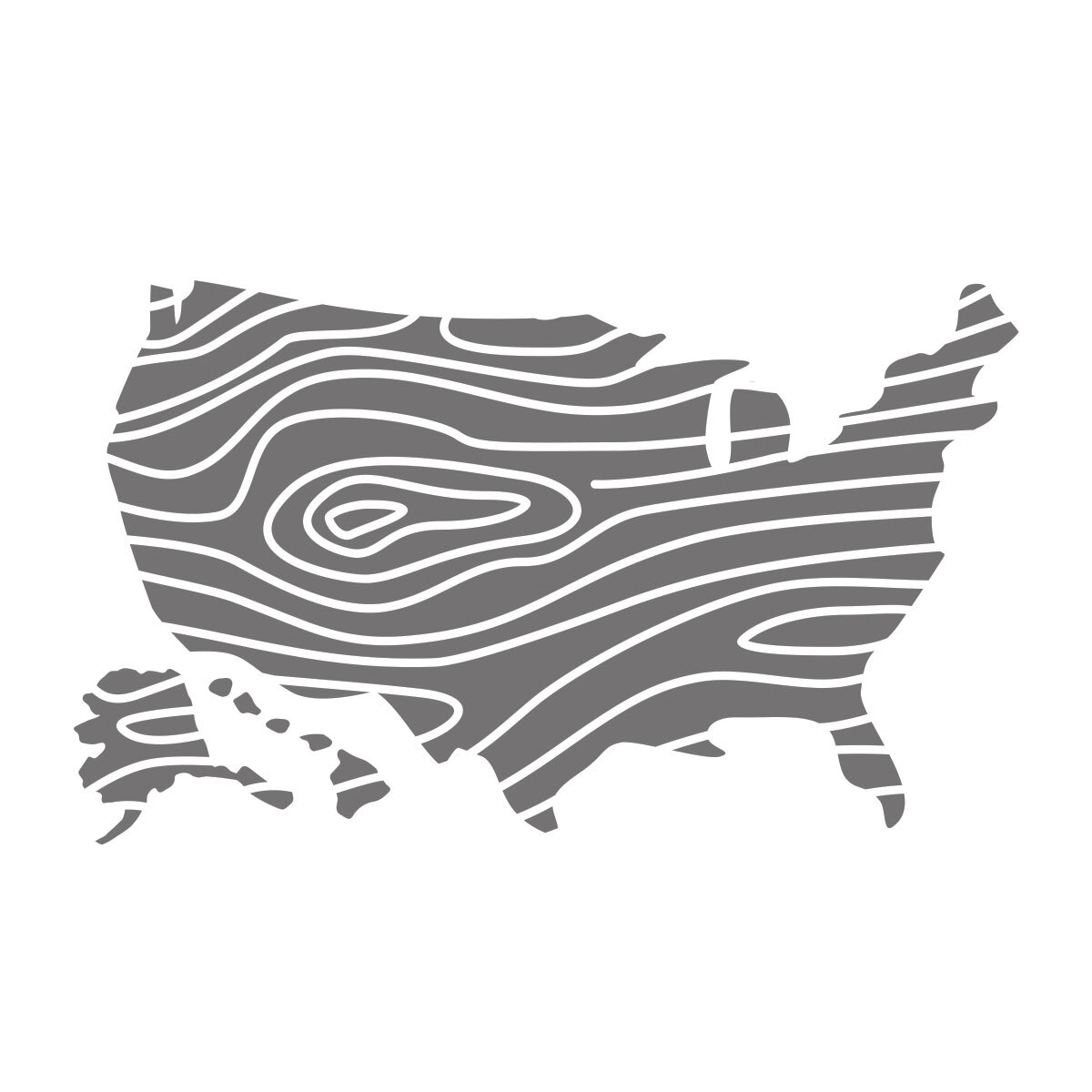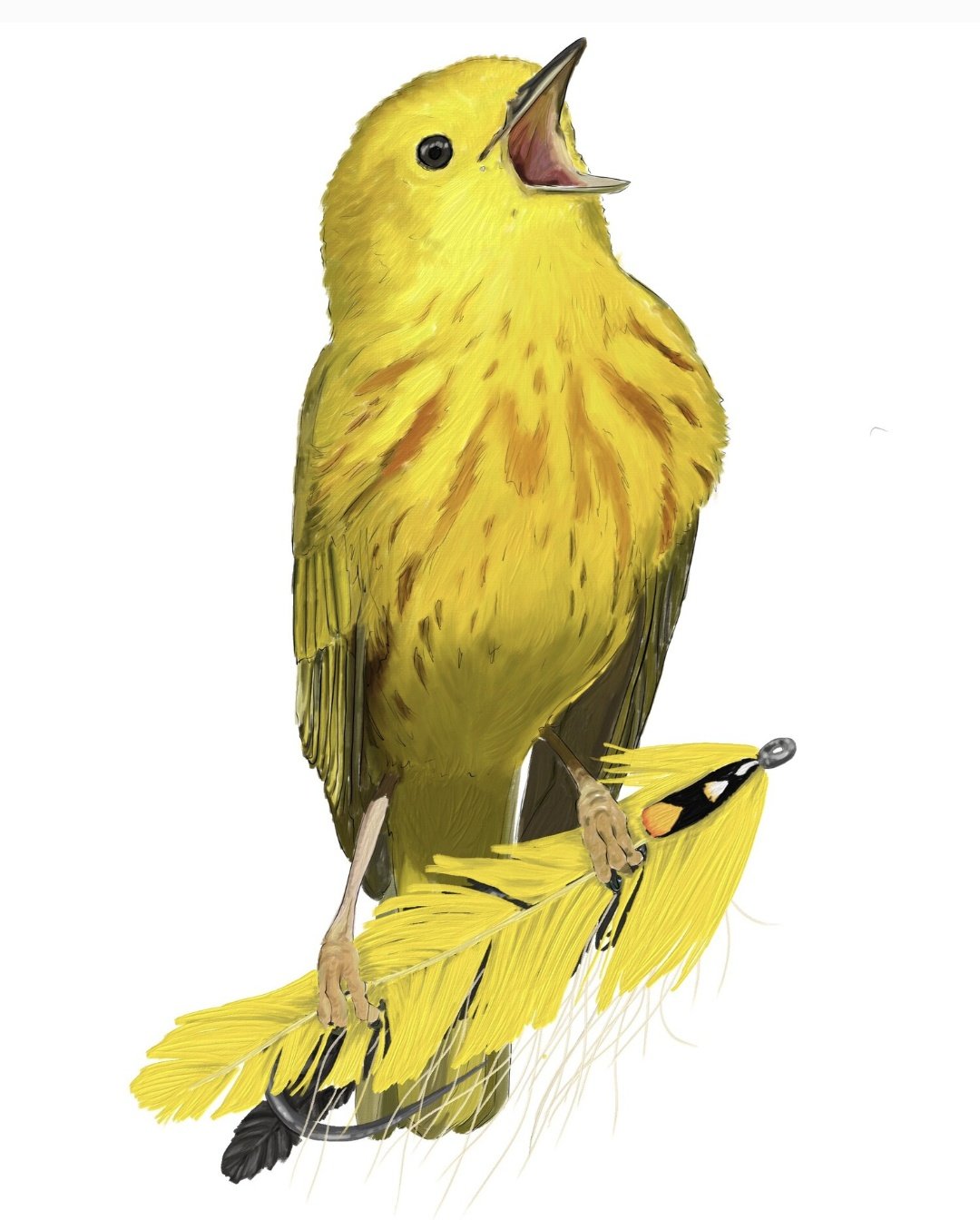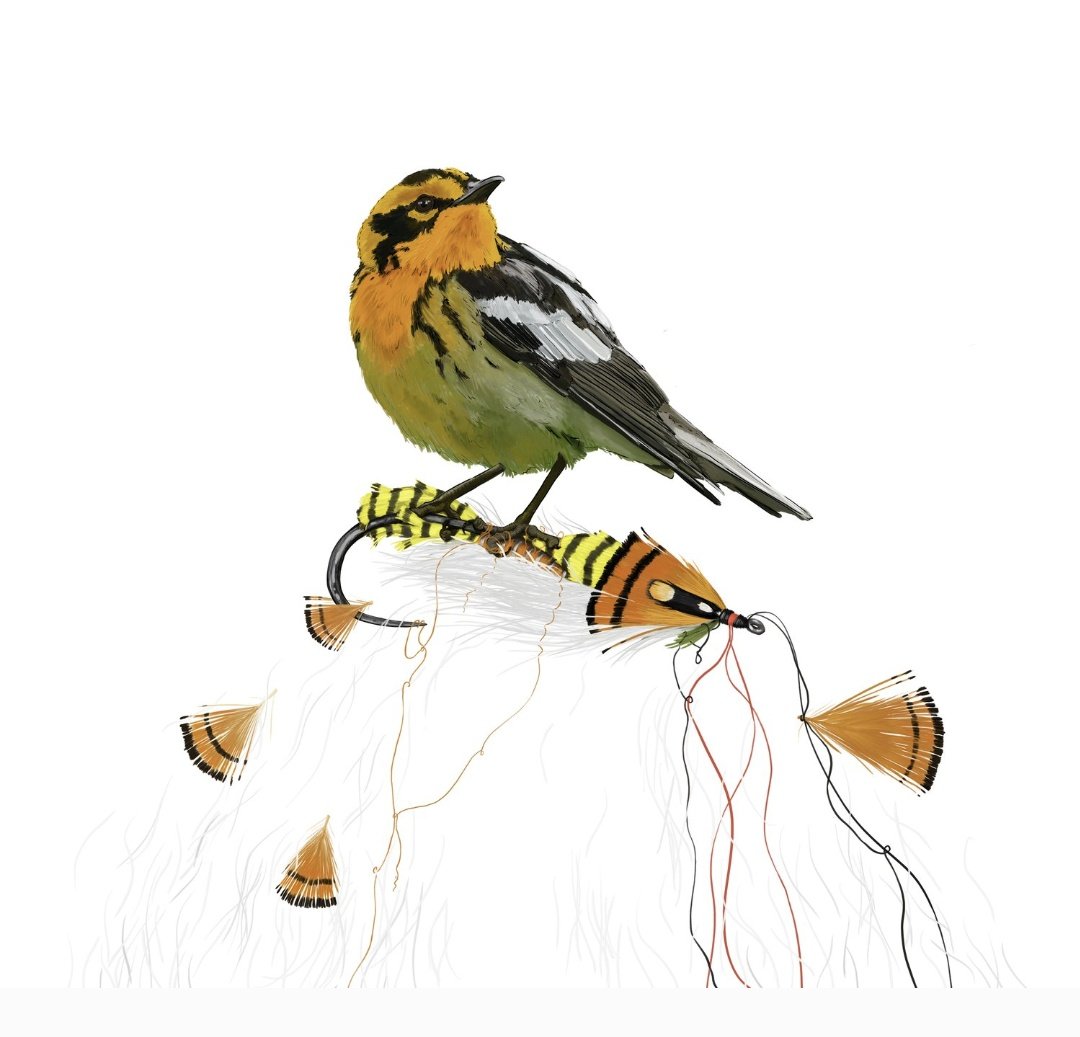Bri Dostie
“I started through studio art and just being creative and wanting to spend some time outdoors and allow for that to be done in a very grounded and observational way. So I have studio art practice and I'm also a Maine guide. I've been an angler for a long time. But mostly that's a way again to be outside and be looking around and feeling very innately human surrounded by nature. So I guide people fishing and I also founded the Confluence Collective which is all about accessibility to the outdoors, making sure that there's space for everybody on the water.,” said Bri Dostie.
Bri is all about the outdoors and she was the perfect maker to have on this podcast. She started her maker journey through studio art which is quite beautiful and unique.
“I grew up in pretty rural Central Maine, outside the foothills of Oxford County, and my family very much was in the outdoors throughout, which is a huge privilege to have that kind of access and also, like loving relationship to get to know nature through my mom, homeschooled me from like, first grade to seventh grade. So science class was moving logs to see if we could find salamanders and like taking different courses through local colleges just basically being outside and in a really hands on kind of way. And throughout that I really fixated on learning about birds, learning about all the living things that were in these places, and started doodling them quite a bit, did a bunch of ducks for the Federal Stamp Competition when I was younger, if you look back through the records might have one for me and a couple of times. But that was a really nice way to kind of build my interest and feel confident to like keep trying things and keep observing things and to continue practicing through studio work. So I really love that. As I grew up, a lot of my relationships were built around being outside. So when I was six, a way that I spent time with my grandparents was just tromping around the brooks in their backyard and around South Paris. That was something that they turned to for sustenance, like being able to feed your family with brook trout was something that we definitely relied on. And I was able to catch my like first fish with my mom on my grandfather's gear. And it was this beautiful brook trout, and it was delicious and corn meals. It was really a nice bonding kind of moment. And I got more into fly fishing as I got a little older to be spending time with more peers entered public school space, had my boyfriend and that was a nice way for us to get the okay from parents to hang out. And the joke's on them, we really did just go fishing. So I learned how to fly fish on a bass pond in Bowdoin with his parents, and that was just fuel to the fire to keep going, and keep exploring,” said Bri.
But her passion for fly fishing didn’t stop there as she started an organization that is all about inviting everyone to the water.
“I started fly fishing, and usually found myself as the only like, female-identifying person in that space, I would hang out with my boyfriend and his dad, which was great. And that's also a space that has limitations in perspective. And for me, and for probably anybody who's in like a relationship with someone, if you are trying to learn something from that person, there's emotional weight to that, and it becomes something else pretty quickly. So I recognize that there were probably other curiosities that I wanted to explore, and maybe trying to do so only through the way that they might teach me wasn't going to lead to the relationship that I wanted to foster with the sport. So in Maine, we are really fortunate to have some incredible fly-fishing community members. I remember being introduced to Evelyn King who started the Maine Women Fly Fishers Group, and I got really excited by what they were doing. And I've made a lot of friends learned a lot of things by being just a part of that community space, and also recognize the limitations in that where we're in Maine, it's mostly white, it's pretty cis heteronormative. And in those spaces, there were definitely, you know, assumptions and just like ways of going about things that felt like they weren't the most curious, or they weren't the most open. And I'm a person who has a lot of questions. And I think being able to really give some space to those questions required me to push beyond a little bit, which was kind of the impetus behind starting Confluence Collective, which is all about getting people outside and allowing that space for people to build their own relationship with nature. So it started with putting together ways for mostly female-identifying anglers to fish in new water. Most women, especially those who were in community groups, access the water through their husbands, their family members through some other connection, usually male, and there are a lot of these themes of not feeling confident enough in your skills or not feeling like you can blow a lot of money to go somewhere new for this thing that you kind of like and the whole trying to convince yourself of to even taking the time for yourself for fishing trips outside of your home waters tend to be run through fly shops. And that also tends to be very expensive. So we put together an exchange to go to Montana, which is on a lot of people's bucket lists of a bunch of Northeast women to then fish alongside a local community group in Montana, wow, and share their water together. It was incredible. And it was also not perfect like it was a lot of white women coming together. And we still had those limitations of perspective, we still were, you know, had a lot of privilege in accessing those spaces. And so the work that we do is to expand community-based programs decolonize, the way that we conceptualize the water and each other and really instigate that line of inquiry for everyone to be intentional and determining what their relationship is going to be to the water and how that then informs someone else's around them. So we do that in a lot of ways. We think about access, really, logistically in terms of physical access. So working with places like the adaptive Outdoor Education Center here in Maine, which does absolutely incredible work with the local community, expanding a lot of outdoor recreation opportunities. And there's a lot that fly fishing needs to catch up on a lot of like moose trails that aren't necessarily easy to get to or navigate, even if you hear about them, which is usually a secret. So yeah. So a lot of our work is like pulling apart the culture of exclusion, and also getting real tangible answers to access. So someone who may not even know that they will have a love affair with fly fishing has the opportunity to test it out,” said Bri.
Tune in to this episode to learn more about Bri’s passion for fly fishing, her studio art, her being a Maine guide, and the various activities happening under Confluence Collective.




